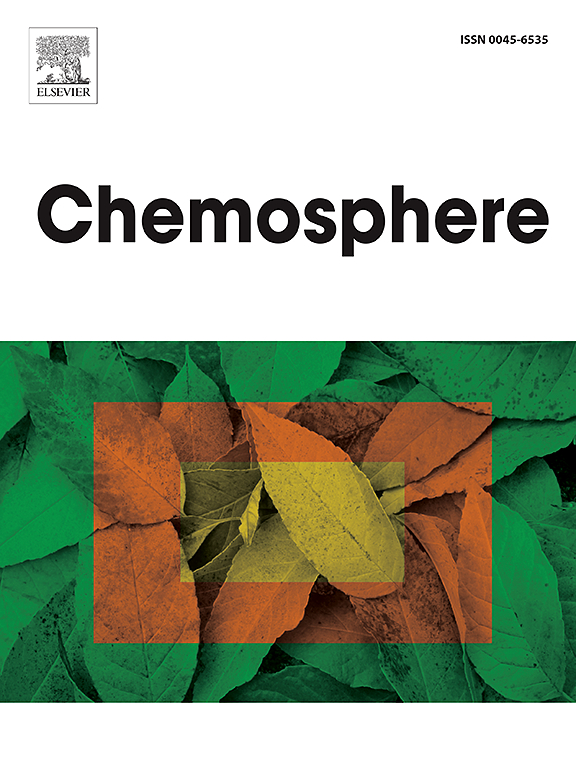Mutational landscape induced by chronic exposure to environmental PM10 and PM2.5 in A549 lung epithelial cell
IF 8.1
2区 环境科学与生态学
Q1 ENVIRONMENTAL SCIENCES
引用次数: 0
Abstract
Exposure to particulate matter (PM) has been linked to an increased risk of multiple diseases, primarily lung cancer, through various molecular mechanisms. However, the mutagenic potential of PM remains unclear. This study aimed to provide a comprehensive description of genetic mutations and mutagenic signatures resulting from chronic exposure to PM10 or PM2.5. Using whole exome sequencing, we identified driver mutations and mutational signatures in A549 cells, a lung epithelial cell model subjected to weekly exposure to either PM10 or PM2.5, for a period of 28 weeks. The number of single nucleotide variations, insertions, and deletions increased depending on the duration of exposure. PM10 generated the highest number of genomic alterations. Amplifications in SYK (oncogene) and mutations in NCOR1 (tumor suppressor gene) were prevalent in cells exposed to either PM10 or PM2.5; however, other mutations were exclusive, such as TP53 and ANK3 for PM10, and ERCC1 and ERCC2 for PM2.5. Different p53-related signaling pathways were most enriched by driver mutations upon exposure to both PM10 and PM2.5, particularly the glucose deprivation pathway. Exposure to either PM10 or PM2.5 resulted in high frequencies of C > A substitutions and one-base insertions/deletions in microhomology sites. The single-base substitution (SBS) signature SBS05, related to the nucleotide excision DNA repair pathway, contributed the most to both PM10-and PM2.5-exposed cells. The contribution of signature SBS18, related to oxidative stress, was observed in cells exposed to either PM10 or PM2.5, but a greater contribution was observed in PM2.5-exposed cells. In addition, SBS03 and SBS36, which are related to different DNA damage repair mechanisms, were observed more frequently in PM10-exposed cells. We assessed the mutagenic potential of PM10 and PM2.5, as a complete mixture, identifying mutated driver genes and mutational signatures generated by chronic PM exposure, which could contribute to the development of cancer, cardiovascular, and digestive diseases.

A549 肺上皮细胞长期暴露于环境 PM10 和 PM2.5 诱导的突变景观。
通过各种分子机制,暴露于颗粒物(PM)与多种疾病(主要是肺癌)的风险增加有关。然而,可吸入颗粒物的致突变潜力仍不清楚。本研究旨在全面描述长期暴露于 PM10 或 PM2.5 导致的基因突变和诱变特征。利用全外显子组测序,我们确定了 A549 细胞(一种肺上皮细胞模型,每周暴露于 PM10 或 PM2.5 28 周)中的驱动突变和突变特征。单核苷酸变异、插入和缺失的数量随暴露时间的长短而增加。PM10 产生的基因组改变数量最多。SYK(癌基因)的扩增和NCOR1(抑癌基因)的突变在暴露于PM10或PM2.5的细胞中都很普遍;然而,其他突变是排他性的,如PM10中的TP53和ANK3,以及PM2.5中的ERCC1和ERCC2。在暴露于PM10和PM2.5的情况下,不同的p53相关信号通路最容易出现驱动突变,尤其是葡萄糖剥夺通路。暴露于PM10或PM2.5都会导致微组学位点的高频率C>A置换和单碱基插入/缺失。单碱基置换(SBS)特征SBS05与核苷酸切除DNA修复途径有关,在PM10和PM2.5暴露的细胞中贡献最大。在暴露于PM10或PM2.5的细胞中都观察到了与氧化应激有关的特征SBS18的贡献,但在暴露于PM2.5的细胞中观察到的贡献更大。此外,SBS03 和 SBS36 与不同的 DNA 损伤修复机制有关,在 PM10 暴露的细胞中观察到的频率更高。我们评估了PM10和PM2.5作为一种完全混合物的诱变潜力,确定了长期暴露于PM中产生的突变驱动基因和突变特征,这些基因和特征可能会导致癌症、心血管疾病和消化系统疾病的发生。
本文章由计算机程序翻译,如有差异,请以英文原文为准。
求助全文
约1分钟内获得全文
求助全文
来源期刊

Chemosphere
环境科学-环境科学
CiteScore
15.80
自引率
8.00%
发文量
4975
审稿时长
3.4 months
期刊介绍:
Chemosphere, being an international multidisciplinary journal, is dedicated to publishing original communications and review articles on chemicals in the environment. The scope covers a wide range of topics, including the identification, quantification, behavior, fate, toxicology, treatment, and remediation of chemicals in the bio-, hydro-, litho-, and atmosphere, ensuring the broad dissemination of research in this field.
 求助内容:
求助内容: 应助结果提醒方式:
应助结果提醒方式:


